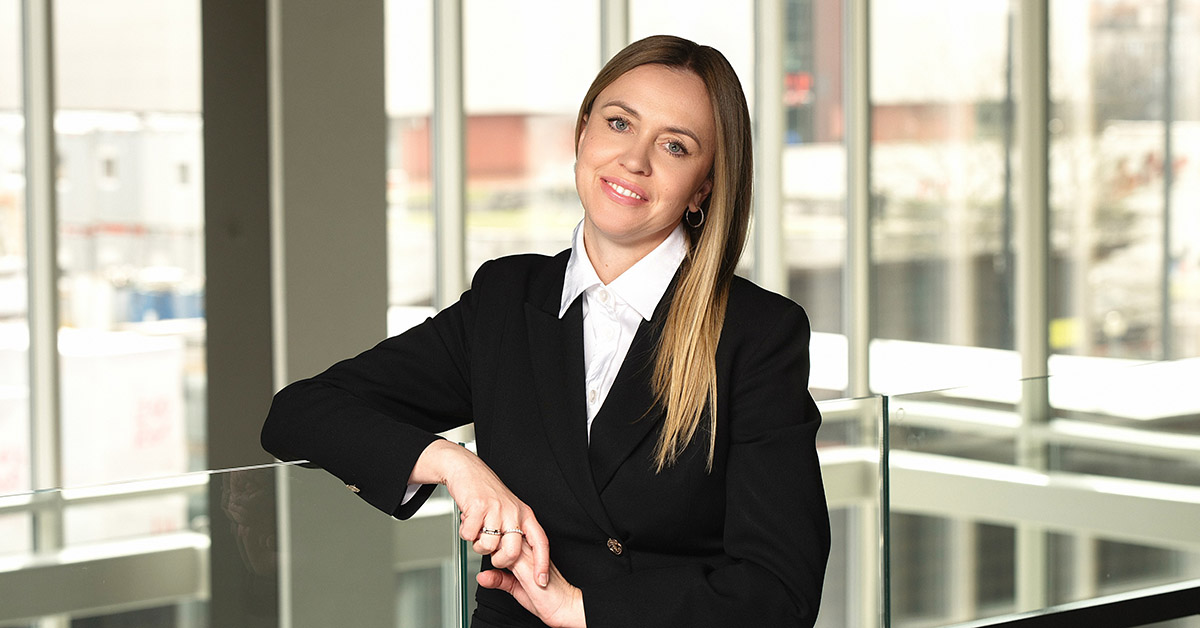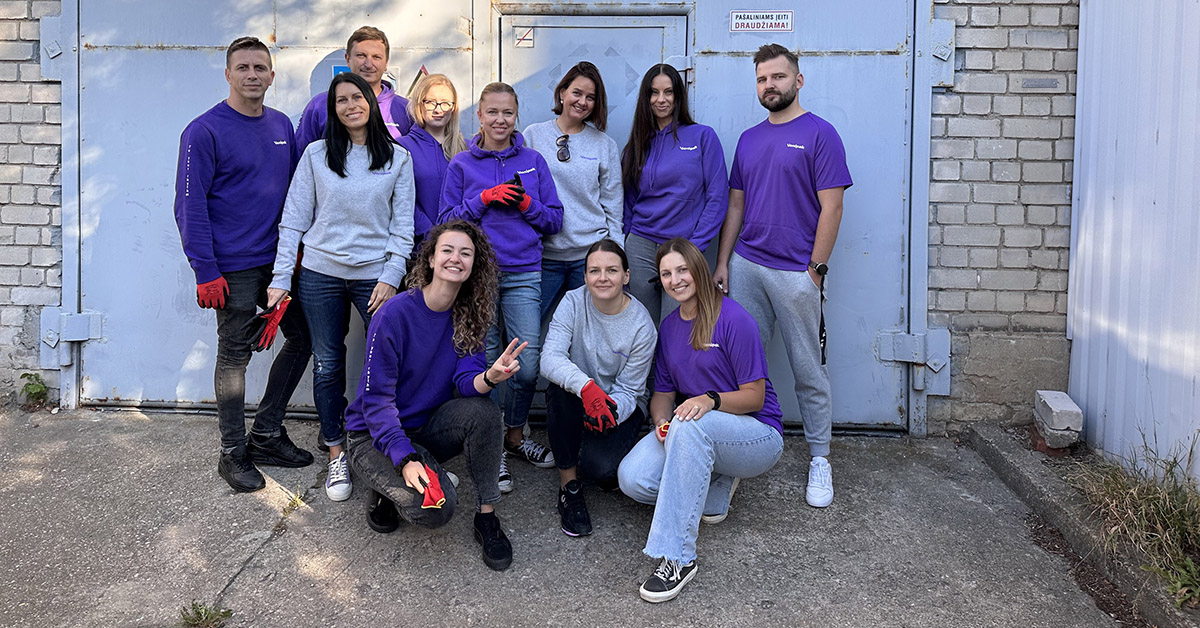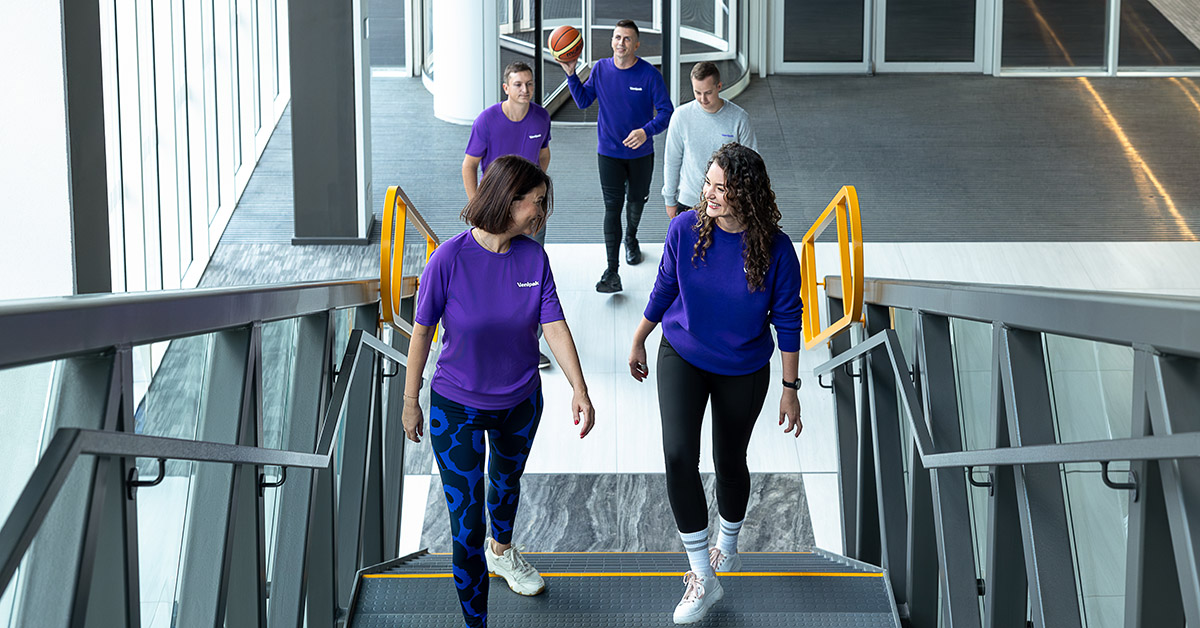Employee wellbeing is a complex equation with many variables. It’s something that every employer needs to solve in order to make their employees feel valued, safe, confident and productive, so they are not waiting to run to a place where the grass is greener when the first opportunity arises. How is it possible to ensure the wellbeing of all, when everyone is so different – one person may be thinking about a gym membership, while another one needs a more comfortable chair?
In cooperation with Workplace Intelligence, an independent research company, Deloitte conducted research in four countries this year – US, UK, Canada and Australia. 3,150 top-level executives, managers and employees were interviewed. The survey found that less than two-thirds of employees would rate their physical and mental wellbeing as excellent or good, while an even smaller proportion have a positive view of their social and financial wellbeing. Even though employee wellbeing seems to be an obvious goal that every employer should strive to achieve, the results show that the theory is not implemented in practice.
According to Asta Raudonienė, Chief Marketing Officer at Venipak, every employer is aware of the important role that employee wellbeing plays in their organisation. “I think everyone is aware of the importance of employee wellbeing. Yet every company is a living being, faced with a variety of problems. There’s toxic people, for example. Everyone understands the importance of wellbeing, but not everyone has taken the steps and made the necessary contributions to achieve it. It’s one thing is to understand, but another thing to do something,” she explained.

The five components of wellbeing
According to Gallup research, employee wellbeing is made up of five core elements: career, social, financial, physical and community.
“When trying to define wellbeing, we need to answer questions such as whether an employee is satisfied with their duties and status at work, whether they find it easy to establish relationships with other people, and whether they are satisfied with their social contact,” said Laura Buitkuvienė, Head of HR at Venipak. “Equally important is the question of personal finances, as well as physical wellbeing: does the employee have enough energy to carry out their direct functions? Finally, wellbeing also contributes to a sense of community, where people feel connected to their colleagues and where coworkers help each other.”
Step one – surveying your staff
According to Raudonienė, creating wellbeing is a long process that requires hard work. It starts with understanding who you are and what kind of environment you want create: “We need to grasp the existing problems and to understand why people may be feeling bad. Four years ago, we took this step, to find out why our employees were feeling unhappy. Our in-house research showed that communication is the key to our employees’ wellbeing: people feel good when they know where they need to work and what they want to achieve. We tried to solve our problem in different ways; for example, by sharing internal information about the company’s results on the intranet, via newsletters.
For employers who want to ensure the wellbeing of their staff, A. Raudonienė’s advice is to first conduct a survey that reveals your organisation’s weaknesses and helps you understand what your employees need.
“Maybe the survey will show that simply buying new coffee beans will make a vast improvement,” she said. “After all, we are all very different – one person may need a more comfortable chair, while another could want flowers on their desk. The survey may reveal that your employees would benefit from a gym membership, or perhaps there is a lack of communication within the company. It may also show that fundamental changes are necessary.”

Wellbeing package tailored to needs
According to Buitkuvienė, today’s labour market is very dynamic, so employers who want to keep their colleagues motivated and loyal have to do everything they can to increase their sense of wellbeing.
“Those employers who are able to attract and retain staff are the winners in the long run. At the moment, trends such as a strong focus on flexibility and flexible working hours, as well as offering various events and rewards, are prevalent in the development of a wellbeing package,” said Buitkuvienė.
 The wellbeing package provided at Venipak is based on the employee needs and market trends. “We run an employee engagement survey every year, to find out what matters to our staff. One example of the wellbeing packages in our company is the opportunity to move up the career ladder,” said Buitkuvienė. “Our Head of Logistics for the Baltics started as a courier, then worked his way up through the ranks and now manages logistics teams in three Baltic countries.”
The wellbeing package provided at Venipak is based on the employee needs and market trends. “We run an employee engagement survey every year, to find out what matters to our staff. One example of the wellbeing packages in our company is the opportunity to move up the career ladder,” said Buitkuvienė. “Our Head of Logistics for the Baltics started as a courier, then worked his way up through the ranks and now manages logistics teams in three Baltic countries.”
The contribution of the manager is important, but…
The Workplace Intelligence and Deloitte survey both found that almost all employees (94%) believe that their manager bears at least some responsibility for their wellbeing, and 96% of managers agree with this statement.
According to Buitkuvienė, the role of the manager is very important for an employee’s emotional wellbeing, because if they are unable to clearly communicate their goals and tasks, that employee will be placed under constant stress.
“Of course, if an employee is proactive and communicative, they will find a connection with the manager and together they will come to an agreement. But if the person does not have the courage to initiate a discussion, they could end up feeling demotivated and may not accomplish the tasks,” said Buitkuvienė. “Another situation occurs when the manager is unable to give constructive feedback; for example, the employee may think they have done everything perfectly well, but unfortunately the manager has a different opinion.”
… those managers should be educated as well
Raudonienė adds that even though the role of a manager is very important, it is the company’s complex policies, values and internal culture that play the key roles. “For example, if I come to lead company X, where there is no policy, I might make my own rules. Conversely, in our company, the policy and values are very clearly defined – as a manager, you have to talk to your employees every week. You set the frequency and the duration of these talks yourself, but during these conversations, you get to know how the employee is doing, how they are feeling and even how their children are. That is how you establish a connection with the employee,” said Raudonienė.
To help managers learn to be part of the team and keep their finger on the pulse, Venipak has taken on the task of providing training for middle managers. “Our middle management includes logistics managers, who are trained to give the right feedback, to manage stress and to express criticism,” revealed Raudonienė. “A manager who communicates correctly contributes to the emotional wellbeing of employees and makes them feel valued and respected in their workplace.”

Employees and their needs come first
According to Raudonienė, the first step in creating employee wellbeing is taking an employee-centred approach, as without the employees there would be no company: “All our goals are achieved by people, so everything we do in our company is viewed from the perspective of the employees. People feel good in situations where their work matches their preferences. For example, the hybrid working model is very popular today. We apply this model in our company too – if a person feels they need it, we make this possibility available to them.”
According to the CMO, Venipak also adheres to the unwritten rule that it is the result that matters, not the time spent at work.
“I once worked for a company where, if you were 15 minutes late, you had to write a note explaining the reason. At Venipak, we don’t do this – if an employee needs to take a day off for family reasons or if they have a doctor’s appointment, that’s perfectly understandable. We trust our employees and are guided by the attitude that family and health are just as important as work,” said Raudonienė.
Buitkuvienė added that Venipak’s values are based on teamwork, as well as the opportunity to fulfil your potential and to be creative. “In line with these values, our employees do not feel constrained. They have the freedom to be creative, to take responsibility for their decisions, to participate in the company’s development and to contribute to our strategy and goals,” she said.
The importance of social initiatives and cooperation
As everyone spends a large part of their day at work, the social life of a company is also very important. According to Raudonienė, it is necessary to find common activities and organise trips together in order to achieve wellbeing.
“We promote a healthy lifestyle, because our activities are directly linked to movement,” she said. “Movement is our motto, so we try to take part in various walks. We also organise basketball tournaments, and we have an app where we offer different movement-related challenges for our employees. We have created a parcel machine route and we encourage our employees to follow it and take a walk around Vilnius. Our approach is that sport is recreation and a step towards relaxation, away from one’s everyday work and routine.”
Fruit days, buying vitamins for staff and free flu vaccinations also contribute to the promotion of a healthy lifestyle, Buitkuvienė explained.
Equally important are various social initiatives that contribute to team building and help people get to know each other better, where they can come together to do something meaningful, like volunteering at the Red Cross or visiting a nursing home.
Everyone should feel recognised
According to Buitkuvienė, in a multinational company with many employees in different countries, it is important that everyone feels part of the team: “We hold monthly meetings, which bring together our employees working in countries ranging from Estonia to China. During these meetings, the monthly financial results are presented to staff, new colleagues and the employees of the month are introduced, and new initiatives, upcoming events and other news are shared. We also hold an annual conference to review the company’s strategy, core projects and development plans.”
Raudonienė added that it is essential for every employee to receive the attention they deserve, which is why Venipak conducts regular personal interviews: “They are designed to help us understand how the employee is doing, where help is needed and how to solve any problems. There are also annual interviews to find out how the employee feels about the company, how they are (or are not) succeeding in achieving their goals, and how we can help them.”
According to Raudonienė, recognition is very important for any person. In a large organisation with hundreds of people, it is easy to become just a face in the crowd. “People need to feel important and valued, which is why we encourage recognition and offer rewards for couriers from colleagues and managers through a dedicated app. We are a large organisation, so it is crucial that every employee feels noticed and valued,” she concluded.




